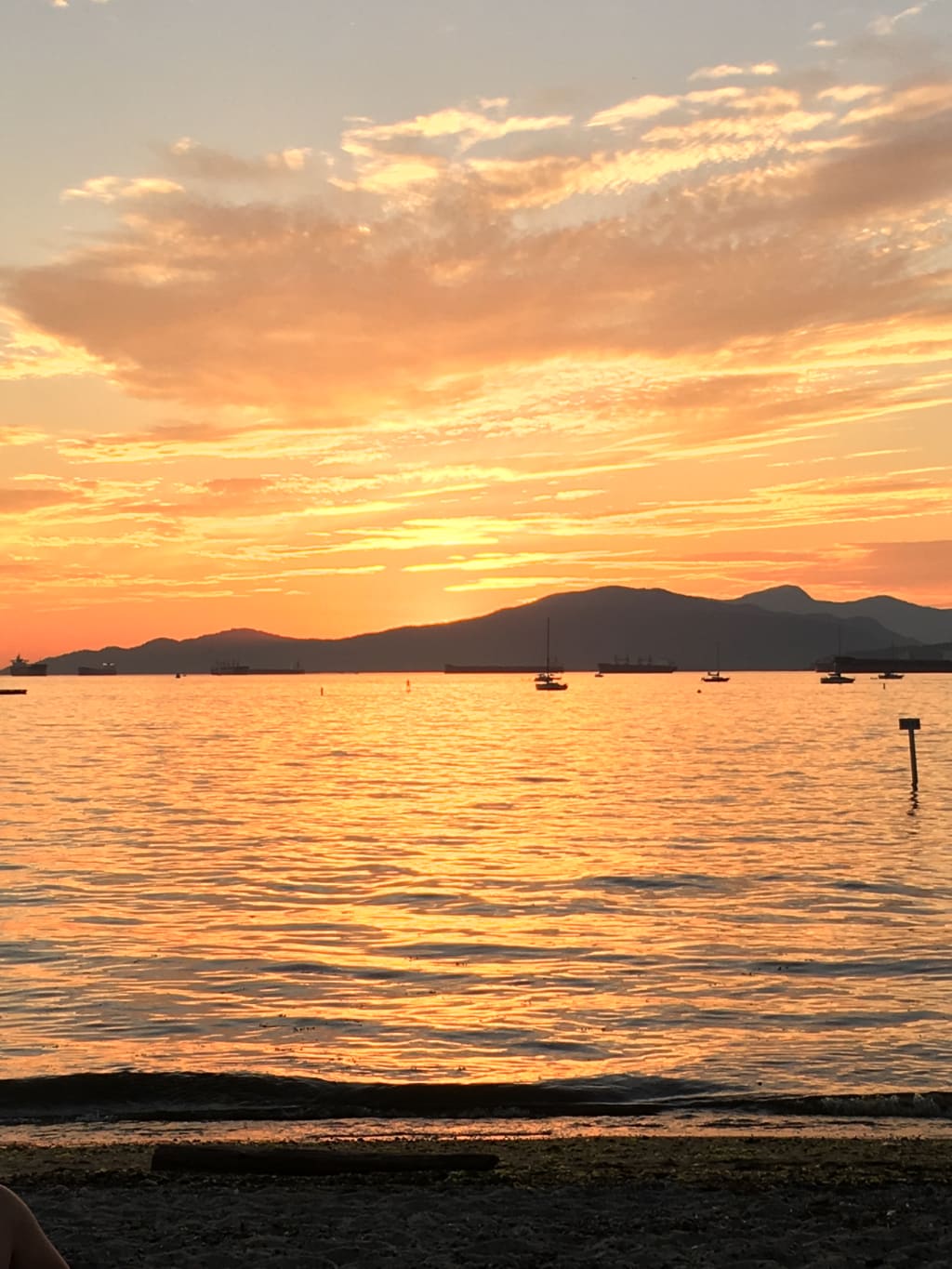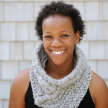
My husband and I are many things. Man and woman, soldier and wife, Mother and father, friend and foe. The children we were disappeared so long ago. It’s hard to believe those two kids ever even existed.
Standing before him, arms akimbo to give me strength, this fight feels different somehow. It’s always me who chooses to play the break up card—this isn’t working, I don’t think I can do this much longer, I’ll say. I come away from these battles confused and defeated, unfamiliar with these two people who can treat each other this way. In our day-to-day life, we are kind, loving and compassionate people who rarely raise our voices. “Calm” is always the word of choice when people refer to me. “Funny” and “easy-going” is Dave. Yet, behind the mask of our own closed doors, we are failing our reputations. None of the good has space to shine through the cracks.
So, when this millionth fight over the same things broke out, I wasn’t expecting it. When I told him we needed a break, I expected the usual “whatever” and a dismissive walk away. I didn’t expect him to agree. I wasn’t expecting him to say maybe we do, maybe we should separate.
The wind is knocked out of me, listening to those words from the other side. Does he mean it? What does this mean? How does this work? For the first time in seven years, it is me who walks away. My breath won’t come and I need to get out of there. So I leave him there, arms crossed and glaring at me from the faux black leather futon - a gift to bring a little class to his man den. I run-stomp down the stairs to the main floor, a wave of guilt rushing over me. Michael sits on the couch, absorbed in his latest movie obsession. Children have a way of hearing things without letting on, and our walls are paper-thin. Did he hear? Does he understand? How much irreversible damage did we do this time?
I quickly calm myself and walk over to him, scooping my lanky four year-old into my arms. He is surprised and mildly annoyed that I would disrupt another viewing of Big Hero 6, but grateful for the extra cuddles nevertheless. I kiss the top of his caramel curls and whisper I love you’s into his ears. I love you, bub. I love you so much. Mommy and Daddy are so lucky to have you.
“I love you too, Mommy. Mommy, look!” he whispers, all seriousness, shock and awe, “Tadashi’s gone. He’s gone, Mommy.” I gaze at him as he looks up at me, waiting. He’s in that in between place of innocence and understanding. How do I explain to him that everyone goes at some point? Everyone leaves. Everyone dies. He sits expectantly as the movie carries on, animated ash and shrapnel flying through the air as the young boy mourns the sudden loss of his brother, having already lost his mother and father at the age of 3. Disney sure crossed a line this time around. “Yes, bub, he’s gone. Like the wind, he’s somewhere else now.”
“Oh, okay.” For now, he’s satisfied with this answer. It seems all his little heart and brain can handle. I drop one last kiss on his beautiful head and make my way down to the garage.
I open the door to the garage, our giant storage locker come office. As much time as I spend down here, I try never to focus too long on the areas dedicated to my husband. Four five-by-two feet wooden storage shelves overflowing with green camouflage and digital beige. His black boots lay tossed aside and worn through from hundreds upon hundreds of left-right, left-right, left-right, left. Weathered duffle bags are bursting at the seams with all manner of equipment and weapons I choose to ignore. It’s all his, but he owns none of it. When the day comes that the army releases its hold, all of this will go back, and only the dust of 6,000 miles will remain.
I pause before the nearest shelf, the one containing the greatest amount of beige. The dented helmet sits there, unused in over five years, but taunting me nonetheless. He can still go back, it whispers. The voice is my own—the same voice that taunts me, day in and day out. Your cancer can come back. Dave can go back. Come or go. I choose stay. Just stay, I plead. Stay here, stay whole—stay healthy. Stay, alive.
I reach down for the beige boots. These boots took him away in the first place, but they also brought him back. Every step he took, from the moment he first left, was a step back towards home. It was the boots that spent the most time in the sand. The boots felt the weight of each storm from above, below and within. As I hold them in my hands, I can feel the dust. Millions of tiny particles transported from a land I’ll never see. Thick and rough, it clings to the boots, unwilling to let go. Let him go, I command. Let him go.
I slip my feet into the boots and lace them up tight, wrapping the extra ends around my calf and tucking them into the sides, just as I’d been taught so many years ago. I stare at my feet, close my eyes and imagine myself there. I can smell the heat of Afghanistan. I can hear the howling wind of the umpteenth desert storm as I leave the garage and head out the front door. I can feel Dave’s heart beating hard in his chest, wondering if this time, this was it.
Walking the streets on a Sunday morning wearing Canadian issue desert army boots and fleece pajama bottoms is a rare sight in our quiet slice of suburbia. Even so, people here are polite, and knowing. They smile, give me a nod as if they understand, and carry on their way.
I walk for hours. Down over the train tracks towards Derby Reach, through the forever dampness, where the fog hovers over the river, ever present, despite the sun shining at my back. Trains rumble through Fort Langley and Maple Ridge, identical tracks embracing the mighty Fraser on either side. Even with their thunder, this place is immersed in quiet. I never thought I’d take such joy in this kind of solitude. I’m a city girl, living in the country—a circumstance of compromise.
David wanted to live in Chilliwack, an idea that I immediately put my foot down to. There was no way I would live there. At the time, Chilliwack was an hour and a half away from my parents, not to mention my friends and everything that I deemed fun and exciting. What would I possibly do in Chilliwack? But now, as I march back up Houston Trail and over the tracks again, I ache for an even greater peace. Langley’s quiet is running low. Multi-unit developments are cropping up at every turn, closing in on the countrified silence.
Still, I march on, the country’s silence in stark contrast to the storm still raging through me. Every step in those boots is gunfire in my ears. Every car a threat, and every person conceals a bomb of my own imagining. I walk until my feet ache and my quads feel powerful. I remember what it was like on Basic Training all those years ago, marching through the dust of Alberta. Left-right, left-right, left-right, left. Keen to be the best soldier in my platoon, I would be better than all the boys, whether they liked it or not. I would shoot sharper, run faster, fight harder. I had everything and nothing to lose, then and still. Somehow I always have something to prove.
I walk until I breathe Dave’s breath and feel his fear. My throat begs for water, but still I walk. I walk in his boots for what feels like days. Five kilometers, ten kilometers, one more, just one more. Finally, the boots bring me back home, confused and disoriented. I recognize this place but it no longer feels right. I’m not sure if I should stay or go; I don’t even know if I have the keys. As I turn to walk away, the door is thrust open from inside.
Dave asks me where I’ve been, what happened to me. He was so worried, he was about to call the police. Michael hasn’t stopped asking for you, he tells me. Finally, he yells my name, grabbing me by the shoulders, shaking me back to reality. “I thought I’d lost you,” he says. “I can’t lose you.”
I stare at the boots, my boots, his boots. He can’t understand why I won’t answer him, but then he sees. He sees the boots, he looks into my eyes and he gets it, he finally gets it.
“I think it’s time for these to go,” I say. “It’s time.”
He lets out a deep sigh, nods once and closes the door behind me.
About the Creator
Zuri S.
Zuri is a writer of poetry, memoir and fiction. With a passion for raw and honest writing that unearths brave perspectives, her work has appeared in Emerge 15 and Caitlin Press’ Boobs: Women Explore What It Means To Have Breasts.






Comments
There are no comments for this story
Be the first to respond and start the conversation.